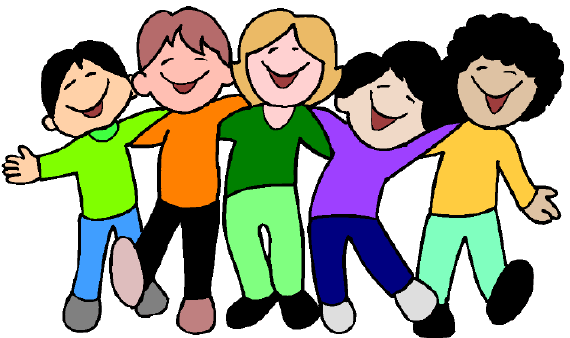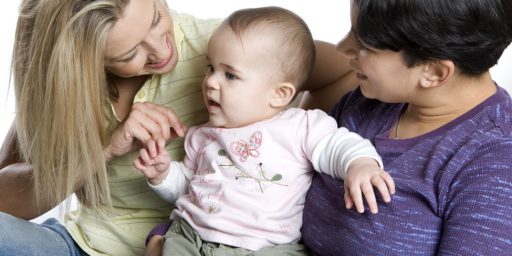Children and Happiness
Economist Bryan Caplan makes “The Case for Having More Kids.”
He begins with the objections:
Most of us believe that kids used to be a valuable economic asset. They worked the farm, and supported you in retirement. In the modern world, the story goes, the economic benefits of having kids seem to have faded away. While parents today make massive personal and financial sacrifices, children barely reciprocate. When they’re young, kids monopolize the remote and complain about the food, but do little to help around the house; when you’re old, kids forget to return your calls and ignore your advice, but take it for granted that you’ll continue to pay your own bills.
Many conclude that if you value your happiness and spending money, the only way to win the modern parenting game is not to play. Low fertility looks like a sign that we’ve finally grasped the winning strategy. In almost all developed nations, the total fertility rate—the number of children the average woman can expect to have in her lifetime—is well below the replacement rate of 2.1 children. (The U.S. is a bit of an outlier, with a rate just around replacement.) Empirical happiness research seems to validate this pessimism about parenting: All else equal, people with kids are indeed less happy than people without.
And his opener in the rebutal isn’t good:
It’s also true that modern parents are less happy than their childless counterparts. But happiness researchers rarely emphasize how small the happiness gap is.
Hmmm. No worries:
Then every additional child makes parents just 1.3 percentage points less likely to be “very happy.” In contrast, the estimated happiness boost of marriage is about 18 percentage points; couples probably have fewer highs after they wed, but the security and companionship more than compensate. In the data, the people to pity are singles, not parents.
Ummm . . . but the answer would seem to be to get married but not have kids? And sure as hell not any extras, since they’re each sucking up 1.3 points of happiness, the little parasites?
A closer look at the General Social Survey also reveals that child No. 1 does almost all the damage. Otherwise identical people with one child instead of none are 5.6 percentage points less likely to be very happy. Beyond that, additional children are almost a happiness free lunch. Each child after the first reduces your probability of being very happy by a mere .6 percentage points.
But, umm, if the idea is to maximize happiness, isn’t this like throwing good money after bad? I mean, less happy is less happy, right?
Happiness researchers also neglect a plausible competing measure of kids’ impact on parents’ lives: customer satisfaction. If you want to know whether consumers are getting a good deal, it’s worth asking, “If you had to do it over again, would you make the same decision?” The only high-quality study of parents’ satisfaction dates back to a nation-wide survey of about 1,400 parents by the Research Analysis Corp. in 1976, but its results were stark: When asked, “If you had it to do over again, would you or would you not have children?” 91% of parents said yes, and only 7% expressed buyer’s remorse.
You might think that everyone rationalizes whatever decision they happened to make, but a 2003 Gallup poll found that wasn’t true. When asked, “If you had to do it over again, how many children would you have, or would you not have any at all?” 24% of childless adults over the age of 40 wanted to be child-free the second time around, and only 5% more were undecided. While you could protest that childlessness isn’t always a choice, it’s also true that many pregnancies are unplanned. Bad luck should depress the customer satisfaction of both groups, but parenthood wins hands down.
Then again, you’d hardly expect people to say the regretted raising their kids. Even if they understand that they’d have been “happier” without the kids, most people still love them. So, really, the only good argument here is that a lot of people regret not having had kids by the time that it’s too late to do anything about it.
Rather than ending here, though, Kaplan makes the bizarre argument that part of the reason people are leaking happiness points by having kids is that they’re trying too hard. He devotes several paragraphs to examining twin studies research to the effect that, the things we’re trying to achieve with good parenting largely aren’t achievable so, why worry, be happy.
Many find behavioral genetics depressing, but it’s great news for parents and potential parents. If you think that your kids’ future rests in your hands, you’ll probably make many painful “investments”—and feel guilty that you didn’t do more. Once you realize that your kids’ future largely rests in their own hands, you can give yourself a guilt-free break.
If you enjoy reading with your children, wonderful. But if you skip the nightly book, you’re not stunting their intelligence, ruining their chances for college or dooming them to a dead-end job. The same goes for the other dilemmas that weigh on parents’ consciences. Watching television, playing sports, eating vegetables, living in the right neighborhood: Your choices have little effect on your kids’ development, so it’s OK to relax. In fact, relaxing is better for the whole family. Riding your kids “for their own good” rarely pays off, and it may hurt how your children feel about you.
Cato’s Will Wilkinson weighs in with “Selfish Reasons Not to Have More Kids,” in which he points out, more extensively than I do above, that Kaplan’s arguments are self-refuting. (Kevin Grier, meanwhile, does it much more succinctly than either of us.) He concludes:
[W]hat one finds is that increases in average levels of education, levels of disposable income, gender equality, and access to birth control — that is, increases in the ability of people (and especially women) to deliberately control the conditions of their own lives — generally lead people to choose a smaller rather than larger number of children. As far as I can tell, Bryan’s response is that it “lacks perspective” to take at face value this truly striking tendency of choice under conditions of increasing personal control. If Bryan really thinks rising education, wealth, and gender equality have somehow made us worse at evaluating the costs and benefits of children, he probably ought to turn in his economist card.
None of this is to say that there aren’t excellent reasons to have families larger than the relatively small rich-country norm. It’s just that these tend not to be the kinds of reasons economists consider “selfish.”
That last sentence is exactly right. Moreover, I’d argue that the definitions of “happiness” at work here are dubious.
My 17-month-old woke up a few minutes ago and interrupted my writing. She does that kind of thing a lot. Indeed, pretty much every morning. And when she does, I have to stop what I’m doing, usually at an inopportune time. And that makes me unhappy!
Is this momentary inconvenience outweighed by the joy she brings me? Of course.
But having kids means constant diversion from doing what you want to be doing at any given moment. And having multiple children, I’m reliably told, tends to increase that phenomenon geometrically. Indeed, parents the world over agree: Kids are a giant pain in the ass!
Those of us who are reasonably intelligent and had children by conscious decision knew all this going in. Indeed, one of the amusing things about impending first-time fatherhood is the number of people who dispense the advice “It’ll change your life!” But that doesn’t make the sacrifices and trade-offs less real.
While I’m a social scientist by training, I’m not a sociologist, much less steeped in the literature in question here. But I don’t know that it’s possible to develop measures to quantify the thousands of instances of “unhappiness” that come from the annoyances of parenthood and the less frequent but far more potent joys. And I certainly don’t think it’s possible to do it in a way that satisfies an economist’s notion of “happiness.”







There are too many wonks out there who have all the answers.
For anyone who believes two is just as easy as one, I offer the following:
Kid 1: Nananananananana.
Kid 2: He’s saying nananananana over and over again. Shut up!
Kid 1: I am not saying nananananana over and over again, I only said nanananananana once!
Kid 2: Hey, don’t push me!
Kid 1: I didn’t push you my hand slipped!
Father: I’m trying to merge a 4000 pound car into 80 mile an hour traffic!
Kid 2: Fine, then I can say babababababababa!
Kid 1: You’re on my side! You crossed the line! Owwww, the pain!
Father: Shut up! Shut up! I swear to God I’m going on a killing spree!
…life, liberty, and the pursuit of happiness.
I don’t think econometric models have much utility in defining or obtaining any of those, unless happiness is an econometric model for you.
Happy Father’s Day.
Michael,
As the father of one hoping to one day be a father of two, I concur. And, as Bill Cosby pointed out many years ago, when you only have one kid, you know who did it.
And, of course, there’s always the future allies thing to consider, as in: Why do grandparents and grandchildren get along so well? They have a common enemy.